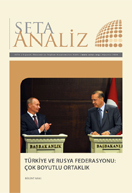Turkish Prime Minister Recep Tayyip Erdoğan's walkout in the midst of a discussion on Gaza in Davos won him millions of supporters not only in Turkey, but around the world. With his bold position on the Middle East peace process, Erdoğan has the Arab and Muslim streets behind him.
Can he win the European street, too? If Turkey is to become a real "regional leader," as US President Barack Obama put it in his phone conversation with President Abdullah Gül and Erdoğan, Erdoğan will have to get more supporters. Let's start with the Arab street. Nobody knows exactly what the Arab street is. This amorphous and vague concept means different things to different people. For the reformists in the Muslim world, it refers to the spirit of change. But it is a force of change under oppression. For the defenders of the status quo, it means an unruly crowd unaware of the realities of world politics. It is an unpredictable crowd that must be kept under control. For Europeans and Americans, it refers to a mysterious social phenomenon with unfamiliar social references and political aspirations. While some have sympathy for it, as we see in such movies as "Syriana" and "Body of Lies," it is a social force that is open to manipulation. The Turkish social and political landscape has been severed from the Arab street for over a century. Ever since the disintegration of the Ottoman Empire and the notorious "Arab Revolt" under Sharif Hussain, Turks and Arabs have turned their back on each other. While Turks have accused the Arabs of "stabbing them in the back" by collaborating with the British, thus committing treason, the Arabs have accused the Turks of embracing European modernity at the expense of their Arab and Muslim brethren. For over a century, Turks and Arabs lived in different social environments, read different books, watched different movies, discussed different issues and had different dreams. Will this change after Davos? It is too early to tell. But there is a new process under way that points to a major perceptual change between Turks and Arabs. The recent issue of Insight Turkey (January-March 2009) has a special dossier on Arab perceptions of Turkey. Essays by Mounir Shafiq, Mohammad Noureddine, Mustafa El-Labbad, Basheer Nafi and myself look at the "Turkey debate" in the Arab world. All of them have one theme in common: Arabs are paying more attention to what's happening in Turkey. But as you can guess, these Arabs belong to the Arab street, not to the Arab elites. It is no secret that the political halls of the Arab states are not jubilant about Erdoğan's meteoric rise to popularity in the Arab world. If Turkey really wants to be a regional leader, it cannot form new alliances at the expense of others. Here comes our question: Can Erdoğan win the European street, too? Popular opposition to Turkey's EU membership continues to be high. About half of the European countries and their political elites support Turkey's membership. But the other half opposes it strongly. Their reasons are not solely about politics or economics. They extend to culture, religion, demography and even race. Whether Turkey gains full membership status or not, these issues remain vital for Turkish-European relations. But they also concern Islam-West relations. To this end, Turkey has to do more to make a convincing case for Turkey. It is a burning irony that the Turkish people and their culture are excluded on cultural and religious grounds at a time when multiculturalism and pluralism are supposedly the talk of the day. What does winning the European street mean? It certainly does not mean emotional outbursts or waving Turkish flags in the streets of Berlin or Paris. But it means something like a historical reconciliation, a process of normalization whereby Turkish and European perceptions of each other are based on knowledge and understanding, not on ignorance and sensationalism. Turkey is a vital ally of the West, a fact dictated by both geography and the nature of the current system of international
Erdoğan won the Arab street, but can he win the European street, too?
Turkish Prime Minister Recep Tayyip Erdoğan's walkout in the midst of a discussion on Gaza in Davos won him millions of supporters not only in Turkey, but around the world. With his bold position on the Middle East peace process, Erdoğan has the Arab and Muslim streets behind him.
Share
Tags »
Related Articles








